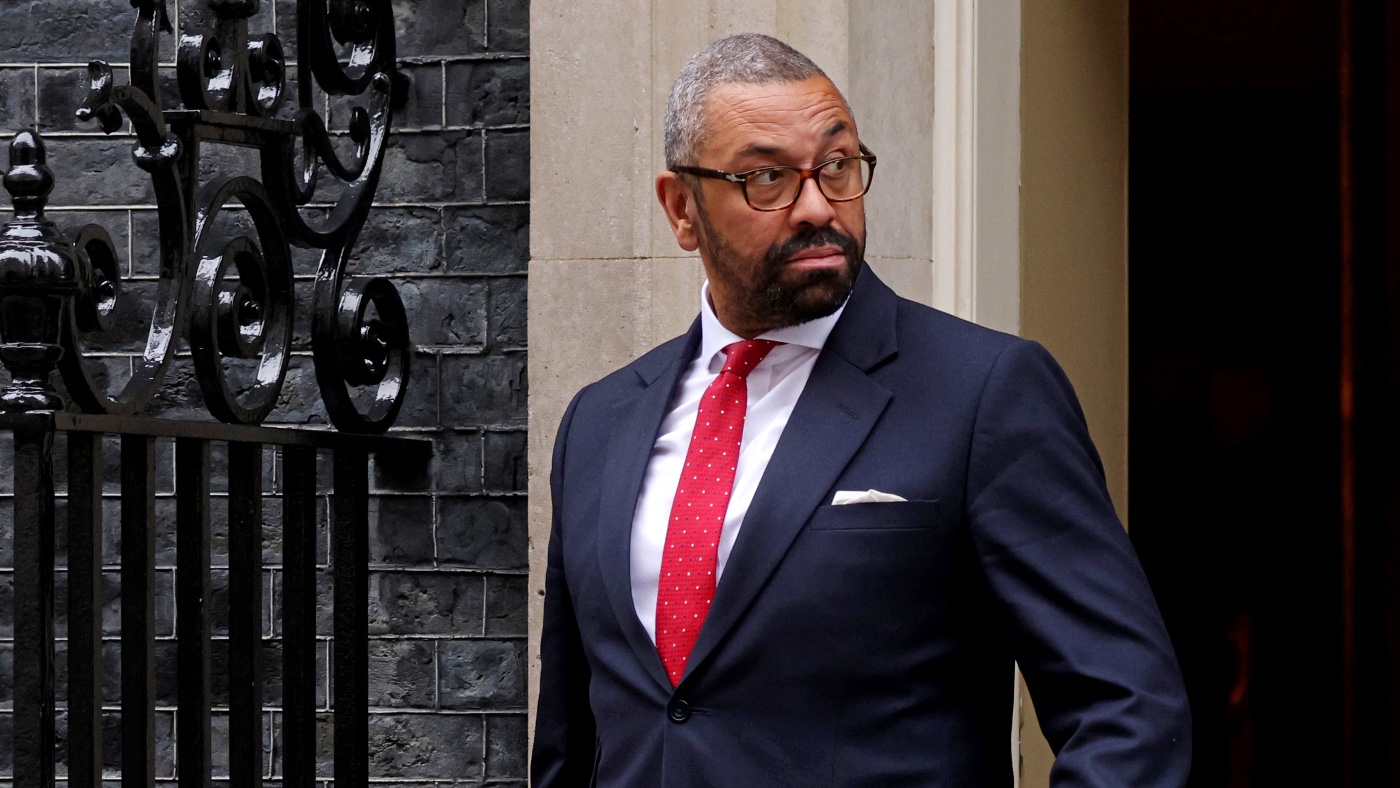China: the new rules of engagement for Britain
Foreign Secretary James Cleverly has rejected claims UK should limit Chinese cooperation and dependence

A free daily email with the biggest news stories of the day – and the best features from TheWeek.com
You are now subscribed
Your newsletter sign-up was successful
For years, a debate has simmered about Britain’s policy towards China, said Juliet Samuel in The Times. The hawks say Beijing is an “untrustworthy menace”, and that we should limit our cooperation and dependence.
But it is the doves – who see China as a “golden goose” for British exporters – who are now in the ascendant in the Government. That was made clear last week, when James Cleverly, the Foreign Secretary, gave a speech in which he reasserted a policy of “engagement” with Beijing.
‘Engagement has not benefited Hong Kong’
Warships may be massing in the seas around China; jets may be circling over Taiwan. But Cleverly says a clash with China is not inevitable, and that with constructive dialogue, we can exert influence over its rulers. Yet the only evidence he could cite for this was that in 2017, British mandarins helped persuade Beijing to use less antibiotics in its animal feed.
The Week
Escape your echo chamber. Get the facts behind the news, plus analysis from multiple perspectives.

Sign up for The Week's Free Newsletters
From our morning news briefing to a weekly Good News Newsletter, get the best of The Week delivered directly to your inbox.
From our morning news briefing to a weekly Good News Newsletter, get the best of The Week delivered directly to your inbox.
The people of Hong Kong have not benefited from our policy of engagement, said Andrew Neil in the Daily Mail. They’ve seen the freedoms negotiated before the British handover in 1997 “swept away” – and the “architect of their repression”, vice-president Han Zheng, rewarded with a seat at the coronation. Cleverly said that climate change can’t be tackled without Chinese engagement. Perhaps. But so far, all we have to show for that “is the massive expansion of Beijing’s coal-fired electricity capacity”. He also cited pandemic prevention – yet China won’t even share its Covid data with the world.
‘Impossibility of decoupling’
Equally “risible” was his idea that the UK might persuade Beijing to be transparent about its military build-up, said Stephen Daisley in The Spectator. Instead of pretending that we want to make China a better global citizen, which just makes us look weak and hypocritical, London should be upfront about its self-interest: “we need China on-side or our post-Brexit prosperity-in-Asia strategy is buggered”.
The UK is not alone in seeking a middle path in its dealings with China. The EU and the US are looking at “de-risking” strategies, said The Economist, which acknowledge the impossibility of “decoupling” from a major global power and trading partner. These include restricting the export of sensitive technologies, supporting domestic industries to reduce China’s dominance of vital supply chains, and banning the import of goods made with forced labour. The problem is, President Xi does not want China to be de-risked, and is likely to push back hard against such efforts. He has already made it difficult for Western firms to audit their supply chains for abuses. “Decoupling will not be easily avoided.”
A free daily email with the biggest news stories of the day – and the best features from TheWeek.com
-
 The 8 best TV shows of the 1960s
The 8 best TV shows of the 1960sThe standout shows of this decade take viewers from outer space to the Wild West
-
 Microdramas are booming
Microdramas are boomingUnder the radar Scroll to watch a whole movie
-
 The Olympic timekeepers keeping the Games on track
The Olympic timekeepers keeping the Games on trackUnder the Radar Swiss watchmaking giant Omega has been at the finish line of every Olympic Games for nearly 100 years
-
 Earring lost at sea returned to fisherman after 23 years
Earring lost at sea returned to fisherman after 23 yearsfeature Good news stories from the past seven days
-
 Bully XL dogs: should they be banned?
Bully XL dogs: should they be banned?Talking Point Goverment under pressure to prohibit breed blamed for series of fatal attacks
-
 Netanyahu’s reforms: an existential threat to Israel?
Netanyahu’s reforms: an existential threat to Israel?feature The nation is divided over controversial move depriving Israel’s supreme court of the right to override government decisions
-
 Farmer plants 1.2m sunflowers as present for his wife
Farmer plants 1.2m sunflowers as present for his wifefeature Good news stories from the past seven days
-
 Koran burning in Scandinavia: freedom of expression’s ultimate test?
Koran burning in Scandinavia: freedom of expression’s ultimate test?Talking Point Anti-Islam demonstrations have sparked condemnation and raised constitutional challenges for Sweden and Denmark
-
 EU-Tunisia agreement: a ‘dangerous’ deal to curb migration?
EU-Tunisia agreement: a ‘dangerous’ deal to curb migration?feature Brussels has pledged to give €100m to Tunisia to crack down on people smuggling and strengthen its borders
-
 Manchester alleyway transformed into a plant-filled haven
Manchester alleyway transformed into a plant-filled havenfeature Good news stories from the past seven days
-
 ‘Islas Malvinas’ and the new battle over the Falklands
‘Islas Malvinas’ and the new battle over the FalklandsTalking Point Argentina scores ‘major diplomatic win’ as EU refers to British territory by its disputed name